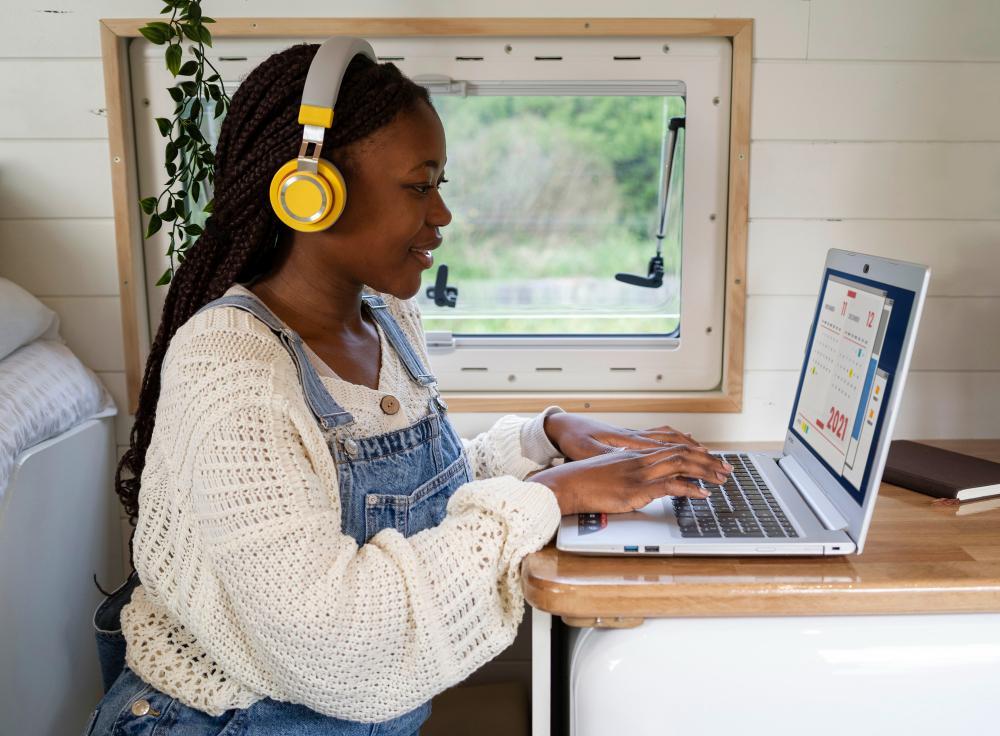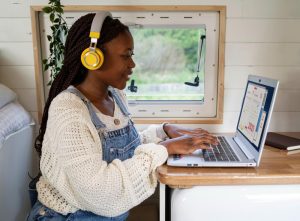Examine how forward-thinking institutions like iPLACE Institute are revolutionizing education by integrating flexibility, cross-functional learning, and holistic wellness approaches. This comprehensive analysis explores global educational trends, remote learning capabilities, emotional intelligence development, and the urgent need for institutions to adapt beyond traditional academic models to prepare learners for an increasingly complex and interconnected professional landscape.
Traditional rigid scheduling and semester-based learning fail to accommodate the reality of modern professional life. Educational institutions must embrace flexible delivery methods that allow students, working professionals, and career changers to access quality education without disrupting their current responsibilities or life circumstances.
Implementation Tips:
- Develop evening and weekend programs that accommodate working professionals across all disciplines
- Create modular learning paths that allow students to combine technology, business, and creative programs
- Offer project-based learning timelines that align with real-world business cycles and career transitions
- Implement iPLACE’s career-aligned learning approach that adapts to individual professional development needs
Cross-Functional Integration Over Isolated Disciplines
The future workplace demands professionals who understand multiple disciplines rather than narrow specialists. Educational institutions must break down silos between departments to create learning experiences that mirror the interconnected nature of modern business and professional challenges.
Implementation Tips:
- Combine technology training with creative design for comprehensive digital literacy
- Integrate wellness programs into leadership and business development curricula
- Connect legal education with entrepreneurship and innovation training for practical application
- Develop communication skills alongside administrative support and finance programs for well-rounded professionals
Wellness-Integrated Learning for Sustainable Success
Academic stress, work-life balance challenges, and mental health awareness require educational institutions to integrate wellness directly into learning experiences rather than treating it as a separate concern. Holistic education addresses the complete human being, not just intellectual development.
Implementation Tips:
- Incorporate mental and emotional wellness training into all professional development programs
- Teach stress management alongside demanding technical subjects like coding and cybersecurity
- Integrate physical wellness concepts into leadership and strategic thinking curricula
- Develop financial wellness education that addresses both practical skills and psychological money relationships
Remote Learning Excellence and Digital Engagement
Global connectivity and technological advancement make remote learning capabilities essential rather than optional. Educational institutions must master digital engagement techniques that deliver equivalent or superior learning outcomes compared to traditional in-person instruction.
Implementation Tips:
- Utilize advanced digital tools for hands-on training in IT, design, and business applications
- Create virtual collaboration experiences that build teamwork skills across geographic boundaries
- Develop online mentorship programs that connect students with experienced professionals globally
- Implement digital portfolio development that showcases student work to international audiences
Emotional Intelligence as Core Curriculum
Technical skills alone no longer guarantee professional success. Educational institutions must prioritize emotional intelligence development, teaching students to navigate complex interpersonal dynamics, lead diverse teams, and communicate effectively across cultural and professional boundaries.
Implementation Tips:
- Integrate communication and social media strategy training with leadership development
- Teach conflict resolution and mediation skills alongside traditional business and legal education
- Develop cultural competency through diverse case studies across all program areas
- Practice emotional regulation techniques within high-pressure learning environments like entrepreneurship training
Real-World Application Over Academic Theory
The gap between academic learning and workplace reality requires educational institutions to prioritize practical application, industry partnerships, and experiential learning that creates immediately employable graduates rather than theoretically educated students.
Implementation Tips:
- Utilize industry-standard tools and software across technology, design, and business programs
- Create real client projects in areas like content creation, digital transformation, and business advisory
- Develop internship and mentorship opportunities across all disciplines from law to wellness coaching
- Build practical competencies through hands-on training rather than lecture-based theoretical instruction
Continuous Learning and Adaptive Skill Development
Rapid technological change and evolving industry demands require educational institutions to instill continuous learning mindsets rather than treating education as a one-time degree completion. Lifelong learning capabilities become essential for sustained professional success.
Implementation Tips:
- Teach learning agility alongside specific technical skills in IT and data science programs
- Develop research and adaptation skills within creative arts and storytelling curricula
- Create professional development pathways that evolve with industry changes in finance and entrepreneurship
- Build curiosity and innovation-driven practices into all learning experiences
Global Perspective with Local Application
Modern professionals must understand global trends while applying knowledge within local contexts. Educational institutions need to provide international perspectives while ensuring practical relevance to students’ immediate professional environments and career opportunities.
Implementation Tips:
- Study international best practices in technology, design, and business while focusing on local implementation
- Develop cultural awareness within communication and leadership training for global professional effectiveness
- Understand worldwide wellness trends while addressing local community health and development needs
- Learn global legal and regulatory frameworks while mastering local intellectual property and mediation practices
Frequently Asked Questions
#1. How do modern educational institutions differ from traditional universities and colleges? Modern institutions like iPLACE prioritize practical skills, flexible scheduling, cross-functional learning, and immediate career application rather than theoretical study, rigid timelines, and academic isolation from real-world professional demands.
#2. Why is wellness integration important in professional education? Sustainable career success requires mental, emotional, and physical well-being alongside technical competencies. Wellness-integrated education creates more resilient professionals who can maintain high performance while managing stress and change effectively.
#3. How does flexible learning benefit working professionals and career changers? Flexible programming allows continuous skill development without career interruption, enabling professionals to stay current with industry changes, transition between fields, or advance within existing roles while maintaining income and professional responsibilities.
#4. What role does technology play in modern educational delivery? Technology enables personalized learning experiences, global collaboration, real-world skill development, and flexible access to education regardless of geographic location or schedule constraints, fundamentally expanding educational possibilities.
Conclusion
The future of education demands institutional evolution beyond traditional academic models toward flexible, integrated, and wellness-focused learning experiences that prepare students for complex modern professional challenges. Institutions like iPLACE Institute demonstrate how educational innovation creates more effective, accessible, and relevant learning opportunities that serve the needs of today’s ambitious professionals and tomorrow’s dynamic workplace.
Ready to experience the future of education? Contact iPLACE Institute today to explore innovative learning programs that combine flexibility, cross-functional skills, and holistic development for sustainable professional success.





